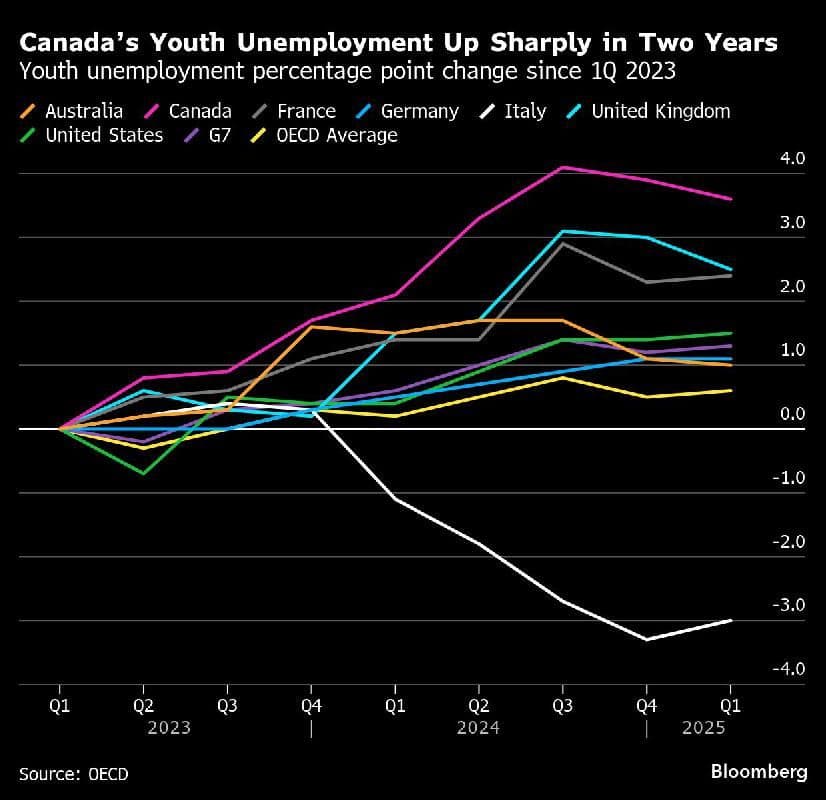Canada's Youth Unemployment Rate Climbs to 15%, Highest Since 2010 (Excluding Pandemic)

Canada's youth unemployment rate has climbed to 15%, marking its highest level since September 2010, excluding the pandemic period. This concerning figure, as reported by Bloomberg, highlights a significant downturn in the job market for young Canadians aged 15 to 24. The overall Canadian economy experienced a loss of 41,000 jobs in July, with the majority of these losses disproportionately concentrated within the youth demographic.
Statistics Canada data reveals that 34,000 of the jobs shed in July were among young people, contributing to an employment rate for this age group that is the lowest since November 1998, outside of the COVID-19 era. While the national unemployment rate held steady at 6.9%, the disproportionate impact on youth signals underlying vulnerabilities across the Canadian labor market. Doug Porter, chief economist at BMO, described July's jobs report as the "weakest in three years," further emphasizing the challenging conditions.
Several interconnected factors are contributing to this difficult environment for young job seekers. Experts point to a substantial post-pandemic surge in immigration, which has significantly increased the pool of individuals competing for limited entry-level roles. Additionally, ongoing economic uncertainties, including concerns over US trade policies and tariffs, have prompted businesses to curtail hiring. The accelerating rise of artificial intelligence and shifting consumer habits are also eliminating jobs in sectors that traditionally employ youth, such as retail and food services.
The struggle is evident for many young Canadians, including recent graduates and high school students, who are finding it increasingly difficult to secure initial employment. Tim Lang, CEO of Youth Employment Services in Toronto, has observed a "higher sense of desperation" from youth applying to hundreds of jobs without receiving any response. This prolonged difficulty in finding initial employment can lead to what experts term "career scarring," potentially impacting an individual's long-term professional development and earnings.
Economists are closely monitoring the situation, with Brendon Bernard, senior economist at Indeed, noting that youth are typically the first to be impacted during hiring slowdowns due to their limited experience. The persistent weakness in the youth labor market is a key consideration for the Bank of Canada as it evaluates future interest rate decisions. Amidst these widespread concerns, the author of the tweet, "tic toc," expressed a particularly bleak outlook on social media, stating, > "Sadly this will only get worst. I think 25-30% is possible next year."